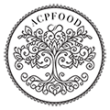The liver is the most vital organ of the body, and many human diseases originate from the failure of this organ to function properly. Therefore, having a healthy lifestyle and a diet suitable for the health of the liver and other body organs can be very effective in maintaining the proper functioning of this vital organ and prevent liver disorders. In this article, we want to describe the liver to a certain extent, identify liver disorders and treat them with food and herbs.
Table of Contents
ToggleLiver Description
The liver is an organ that can be called a blood making factory, a blood refinery, and a distributor of blood derivatives.
The liver is located on the right side of the body in the upper part of the abdomen and in the protection of the ribs and is the largest organ in the body. The liver has a special position in the human body and is considered one of its 5 main organs.
This vital organ is responsible for foodstuff storage and compensates for deficiencies in time, in other words, the liver is considered as the commander who is responsible for the strategy and coordination of the body and controls the regular flow of energy in the digestive tract.
The key to the body’s metabolism, weight control and overall health of the human body are liver’s duty. If there is no liver, various poisons and foods that are not well digested enter the bloodstream.
These toxic substances damage the cells of other organs and the immune system. Beautiful eyes, clear skin, beautiful and healthy hair, restfulness, abundant energy, freshness, and well-being is possible with a healthy liver.
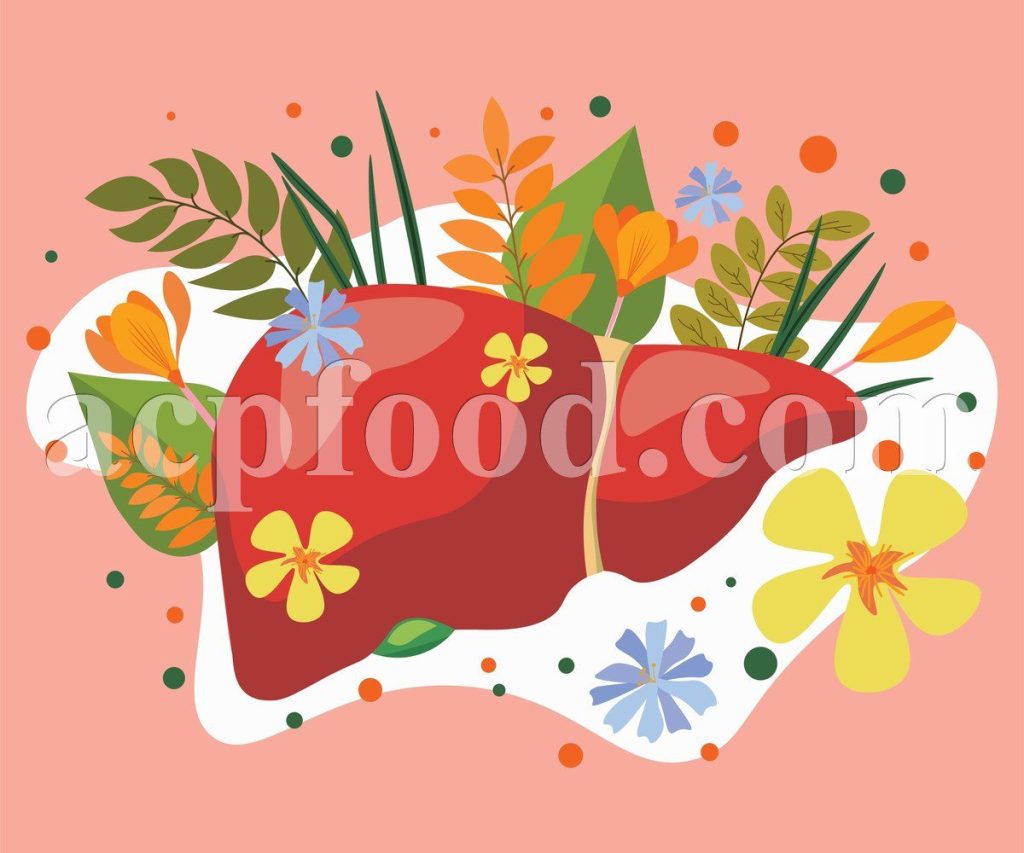
This organ produces more than a thousand types of enzymes to maintain the balance of body systems and eliminate toxins. Inappropriate and heavy foods produce dangerous substances caused by albumin, which if they enter the blood, a person will die, but the liver immediately converts these substances into digestible and absorbable human albumin, removes what is toxic and waste and converted into urea, which is eliminated through the kidneys and urinary tract.
The liver is one of the unique internal organs because it receives blood from two sources. One is from the hepatic artery that comes from the heart and brings clean and oxygenated blood, the other from the portal vein which comes from the side of the stomach and intestines and brings prepared food from the eaten food to the liver. In this way, the hepatic artery and intestinal vein enter from portal vein to the liver and divide into different branches at the point of entry to deliver the blood carrying nutrients to the left and right parts of the liver.
Mesentery converts the food into blood and delivers it to the liver through the portal vein. After receiving it, the liver wants to feed on it and gain strength and makes it the same color as itself. The liver is red, and if you look closely, it looks like clotted blood.
The liver sucks food from the stomach and intestines through portal veins (which we call “Mesentery”) and cooks it in itself, so to speak. Then it refines the cooked material and divides it into four parts:
- Smooth and clean blood (blood humor)
- Water obtained from blood purification (phlegm humor)
- Blood foam which is yellow (yellow bile humor)
- Blood sedimentation (black bile humor)
The liver should distribute and divide the blood derivatives after they are cooked and refined:
- The smooth and uncontaminated part of the blood (blood humor) will be sent to the body through the hollow vein.
- The water-like part which is obtained from the refining process (phlegm humor) goes to the two kidneys through one of the veins from the liver.
- The yellow foam (yellow bile) to the gallbladder through one of the veins that grow from the pit of the liver.
- Sedimentation substance (black bile) to the spleen.
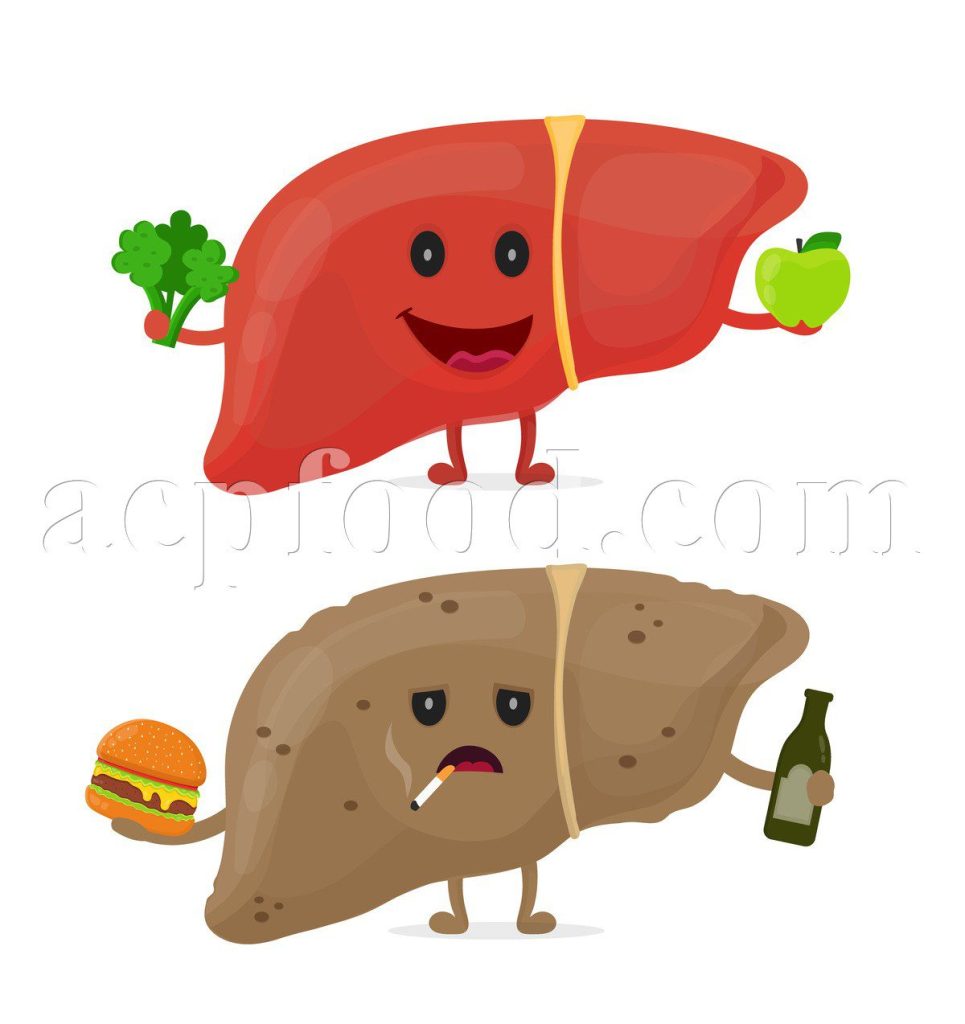
Liver Disorders Symptoms in General
In young people, due to the intense hormonal activity, the liver’s defense power, balance and detoxification are disturbed.
This means that the liver cannot perform the heavy tasks it has to do for the health of the body and the freshness of the skin, because the liver cells, which are responsible for detoxification, cannot produce the necessary antidote due to the large amount of work they have to do to digest, absorb food, and burn fat in order to create a balance in the secretion of toxins.
At other ages, the failure and insufficiency of liver cells causes this imbalance to occur. If the liver gets sick and does not do its job properly, a person will suffer from one or more of the following diseases, which include:
Feeling tired, hard to wake up in the morning, bitterness in the mouth in the morning, pimples on the skin, get poisoning time to time, eye puffiness, obesity in adolescence, pain under the right rib or in the liver area at the right side of the body, itchy skin, itchy head, itchy skin after bathing, dry mouth, runny nose from time to time, bad breath, poor eyesight, increased uric acid.
Incomplete evacuation, dizziness, pains in the body which move, anemia, darkening of the skin color, sunken eyes, darkness under the eyes, pyrosis, the feeling of a fly jumping in front of the eyes, constant vomiting and nausea, blood sugar instability, excessive sweating, sweat bad smell, inflammation or blushing of the skin, white or black spots or bruises on the skin, moles or warts or freckles. , heat and inflammation of the mouth, yellow sclera, yellow color of the body skin.
Intermittent fevers, tongue fur, constipation, oily skin, scalp and hair, pain or burning in the anus or its bleeding, hair loss, feeling sleepy after eating food, sadness or depression, abdominal enlargement, high blood fat, stomachache after eating fatty foods, flatulence, and feeling heaviness after eating, acne, persistent headache, pain in the back of the head, or migraine, lack of appetite, stomach bleeding, nausea and vomit yellow bile and bitter substances (in the morning when waking up), edema in legs or varicose veins, excessive thirst, gallstone formation.
Liver Observation in General
All chemical drugs (medicine) such as acetaminophen to antibiotics are harmful to the liver. If you must use them, be sure to take advantage of liver-strengthening foods and herbs in abundance to avoid side effects and liver disorders.
Liver diseases appear in different forms and have different causes. It is better to know that many people have liver disease. Any kind of chemicals, drugs, artificial food dyes, and unnatural and processed food and substances are harmful to the body.
The liver has an extraordinary ability to repair and regenerate itself and it is usually completely recovered, except in acute and dangerous cases.
If you have any kind of liver disorders, you should first avoid eating foods such as cheese, eggs, fats, dyes, foods which produce black bile in the body such as eggplant, especially fried ones, canned meats, spicy and hot sauces, sweets and cookies, stuck-pot rice, chips, fried potatoes, spinach, and narcotic drugs.
Secondly, use more foods that help to cure liver diseases, such as lettuce, cabbage salad, tomatoes, celery, apples, turmeric, and grapes. As a remedy, drink a glass of sweet lemon juice in the morning, noon, and night.
Liver Mal-Temperament Symptoms and Treatments
The liver can get sick due to different mal-temperaments. First, the patient’s liver disorder should be diagnosed by a doctor and then treated. Below are the symptoms of different liver mal-temperaments:
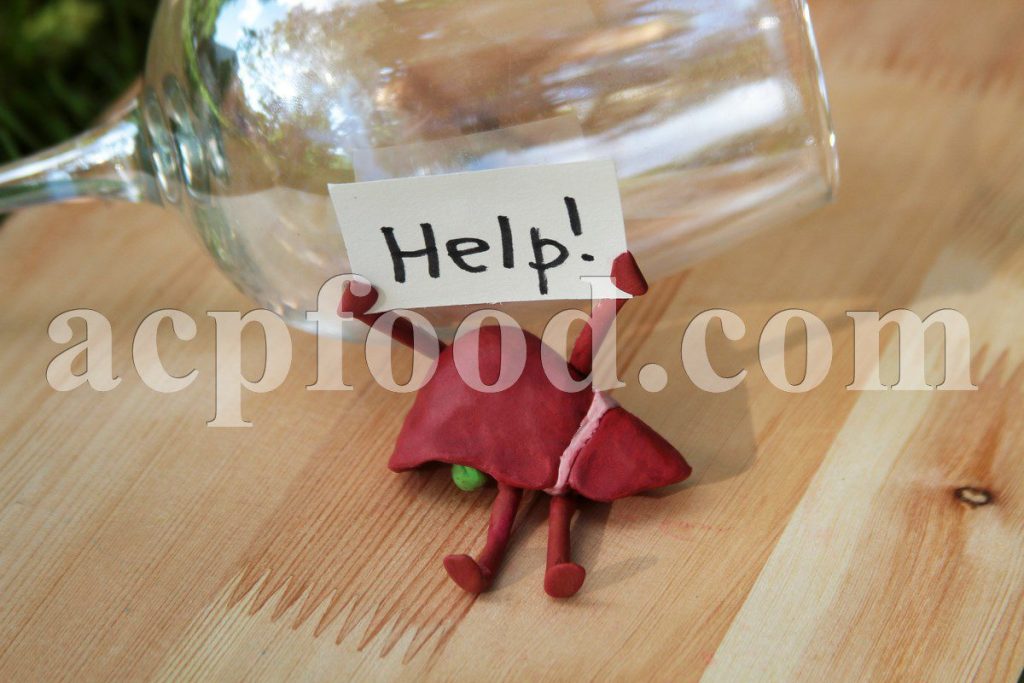
Hot Liver Mal-Temperament Symptoms
- Severe thirst which is not quenched no matter how much water the patient drinks.
- Lack of appetite.
- Inflammation and body heat
- Dark yellow or reddish urine
- High pulse rate
- Constant fever
- Intense heating of the blood and flesh of the body
- Being bothered by hot weather
- Constipation
- High heat when touching the liver
- Dysuria
- Extreme fatigue
Hot Liver Mal-Temperament Treatment
- The liver should get cool slowly not at once. So be careful about the dosage of the medicine.
- Eating boiled Chicory leaves (Cichorium intybus) alone or along with Coriander leaves (Coriandrum sativum) or with vinegar is very useful.
- Barberry and Tamarind are excellent for treating this liver mal-temperament.
- Mix some Damask Rose oil (Rosa damascene) on the beaten purslane, and poultice it on the liver from the outside.
- Non-alcoholic beer.
- Cold temperament vegetables should be cooked in water or in soup and eaten.
- Lettuce salad
- Eating sour yogurt
- Oyster meat
- Eat quince, pear, apple, sweet pomegranate, very sour grapes, blackberry, rhubarb, vinegar, and olive oil with water, eat pomegranate before and after meals, watermelon that is not too sweet, Persian melon, sour-sweet grapes, mung bean pottage, courgette pottage, and lentil pottage. But do not overeat any of the mentioned items.
- Eat small fish meat and veal fillet.
- Hard boiled eggs should not be eaten.
- Drinking wine is very harmful for these patients. But if you want to drink, it should be very diluted.
- Avoid fried foods and hot spices.
- Avoid taking shower with hot
- Avoid very heavy activity and exercise
Cold Liver Mal-Temperament
- Discolored lips
- Discolored tongue
- Anemia, weakness, and difficulty in blood flow
- High amount of phlegm
- No thirst
- Dullness of the skin color. Skin turns to greenish-yellow or like pistachio color.
- White, phlegmatic, and thick urine
- Weak and irregular pulse
- Severe hunger. Digestion is not done well. But when the coldness of the reach the highest possible level, the patient has no appetite for food any more.
- Stool doesn’t have strong smell
- It is possible that the coldness of the liver be caused by drinking cold by empty stomach, after having a bath or sexual intercourse.
- Puffy face
- Persistent diarrhea
- Body coldness
Cold Liver Mal-Temperament Treatment
- Common Wormwood (Artemisia absinthium) decoction should be consumed along with Sekanjebin which is made with honey.
- Eat ginger jam with celery juice at night.
- Eat cooked cabbage with cinnamon, pepper, Terebinth (Pistacia terebinthus L.) and caraway (Carum carvi L.).
- Eat soups which are cooked with fenugreek.
- Hot temperament fruits.
- Chicory leaves should be eaten with food.
- Chestnut, big currant, pistachio
- These patients should avoid eating fats, milk and milk derivatives, fruits which produce moist, and thick meat like beef.
- Eating meat which are cooked with cinnamon, cumin, dill, and chick peas.
- Avoid eating beef and chicken.
- Massage body with hot temperament oils such as sesame and black seed.
- Do exercises.
Dry Liver Mal-Temperament
|
Dry Liver Mal-Temperament Treatment
- The treatment of these patients should be done through food, herbs, drinks, and massage oils which give moist to the body. But don’t overconsume them.
- Mix equal amounts of Purslane seed (Portulaca oleracea), Plantain seed (Plantago major L.), Basil seed (Ocimum basilicum L.), Alyssum seed (Alyssum alyssoides L.). Every morning wash a tablespoon of it and mix it with 1/3 cup of rose water and 1/3 cup of pussy willow hydrosol with a little sugar and drink it on an empty stomach. Don’t eat anything after it for 1 hour.
- Soak 5 dried figs and 10 dried prunes or 5 dried apricots, and 5 dried peaches overnight in a bowl of water. Then eat them in the next morning on empty stomach
- The patient’s diet should be full of laxative foods along with vegetables and fruits such as pumpkin and courgette and the like.
- Eating sweet almond oil, olive oil, canafistula (Cassia fistula L.), foods such as peeled barley, spinach, yogurt, lettuce leaves, marshmallows (Althaea officinalis L.), and non-alcoholic beer.
Moist Liver Mal-Temperament
|
Moist Liver Mal-Temperament Treatment
These patients should do exercises, eat less food, and eat food and medicine which have hot and dry temperament. Drink less water. Avoid drinking milk and its products. The hot spice should be eaten with food. But you should not overdo above items, since too much dryness will lead to withering and depression.
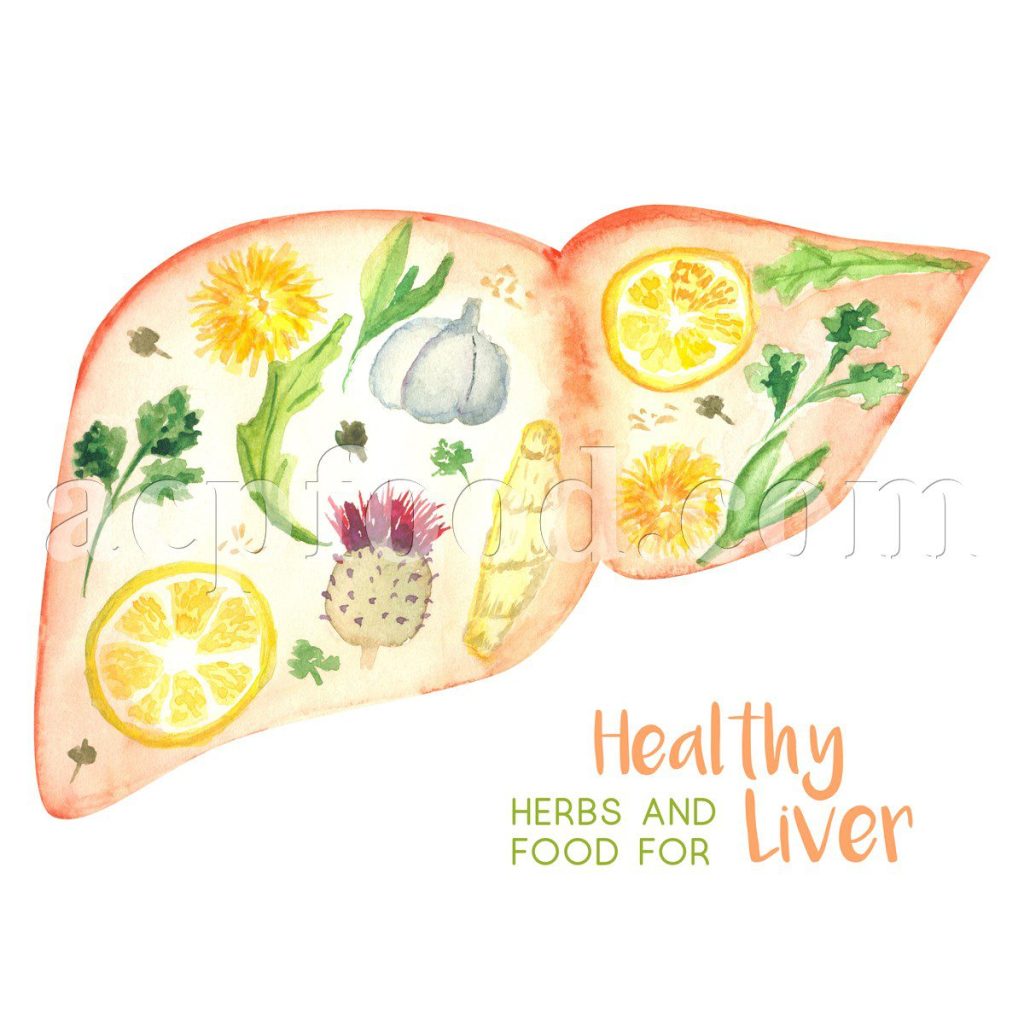
Treatment of the liver in general
- If there is any mal-temperament in the liver, its treatment should be against that humor. For example, in case of hot liver, cold food and herbs should be used.
- The best time to take liver medicine is when the food has reached the liver from the stomach and has been digested in the liver for a sufficient time. Usually, the best time to eat it is when the patient just wakes up or comes out of the bathroom.
- Do not make the liver too cold through food and herbs, because it increases the possibility of polydipsia.
- If a mistake is made in the treatment of the liver, not only the liver will be damaged, but also all the vessels of the body and the body itself will be damaged.
- If the patient has a cold liver mal-temperament, he/she should take their herbal medicine with water and honey syrup.
- If the patient has a hot liver disorder, he/she should take their medicine with Sekanjebin.
Incompatible and Harmful Things to the Liver
- Eating meals at short intervals, before you get hungry.
- Eating heavy (hard to digest) foods such as meat first, and then eat light foods (easy to digest) such as fruits and vegetables on them. This is the most harmful thing to the liver than anything else.
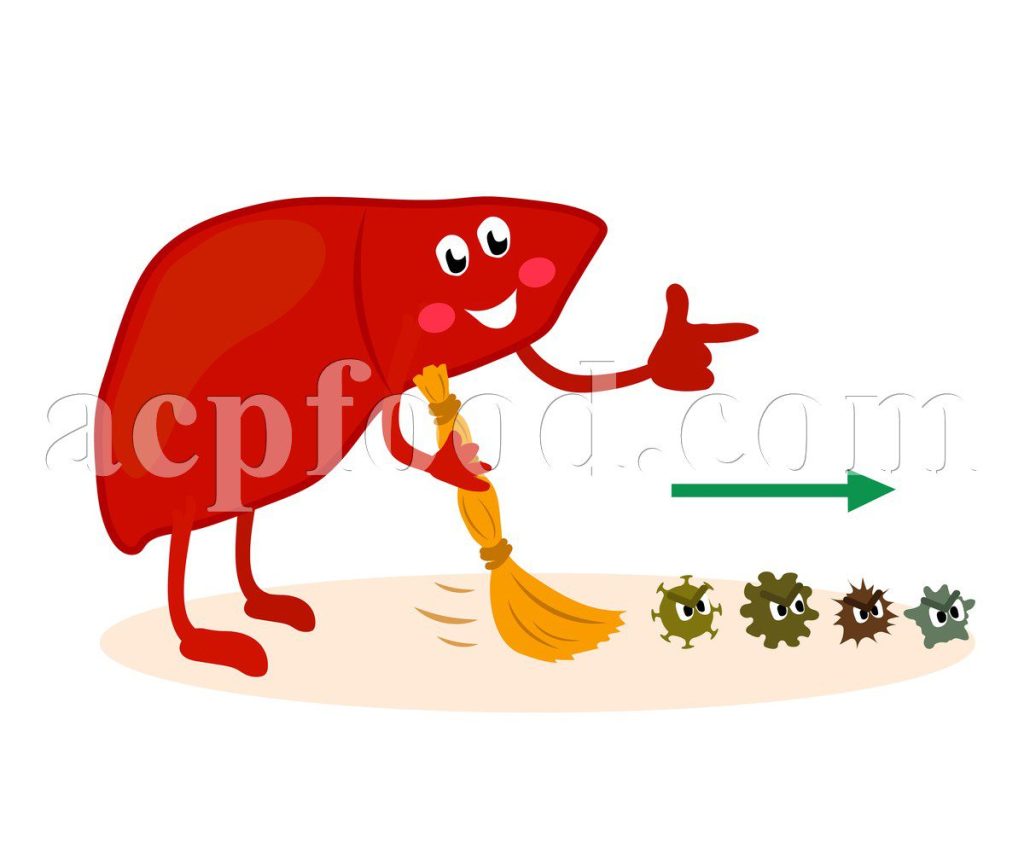
- Drinking cold water on an empty stomach, after bathing, sexual intercourse, and exercise will end up in liver disorders . Drinking cold water during these times makes the liver very cold, because the liver get inflamed due to the above circumstances. Therefore, it absorbs cold water suddenly when you drink it, and needs cold water again and again after that. It may even lead to polydipsia. If a person cannot refrain from drinking water in the above situations, he/she should mix the water with some wine and of course the temperature of the water should not be too cold and drink it sip by sip.
- Any kind of slimy food damages the liver. Because this slimy substance causes blockages in the liver. Such as wheat porridge.
- Sweet wine is very useful for the chest and removes bad substances from it. But it is not so good for the liver.

Compatible Things to the Liver
- Bitter herbs that are opener of barriers, such as chicory root.
- Liver medicine should have good smell. Such as Cinnamon, Myrrh (Commiphora myrrha) and the like.
- Natural sweets (honey, dates, figs, etc.) are compatible with the liver. They make the liver grow and give it strength. But patients who have hepatitis, should avoid it.
- Pistachios are good for the liver, but they are very hot. So those who have hot liver should avoid it.
- Hazelnut is very compatible and useful for any liver and in any condition. Because it is an opener and has good chymus and does not give much heat.
How to Strengthen the Liver
If you want to strengthen the liver, avoid eating spinach and fats, use foods that strengthen the liver, such as:
Zucchini, purslane, pomegranate juice, cucumber, chicory tea or hydrosol, psyllium (Plantago ovata), lemonade, Sekanjebin, tribulus terrestris decoction or hydrosol, olive oil, apple juice, figs, sweet and raw quince, caraway, dill, Fumitory (Fumaria officinalis L.). Lemon Balm (Melissa officinalis L.) decoction, Valerian Root (Valeriana officinalis L.) decoction, Manna of Hedysarum (Alhagi Manna), alcohol-free beer, sour grape, jujube, barberry juice.
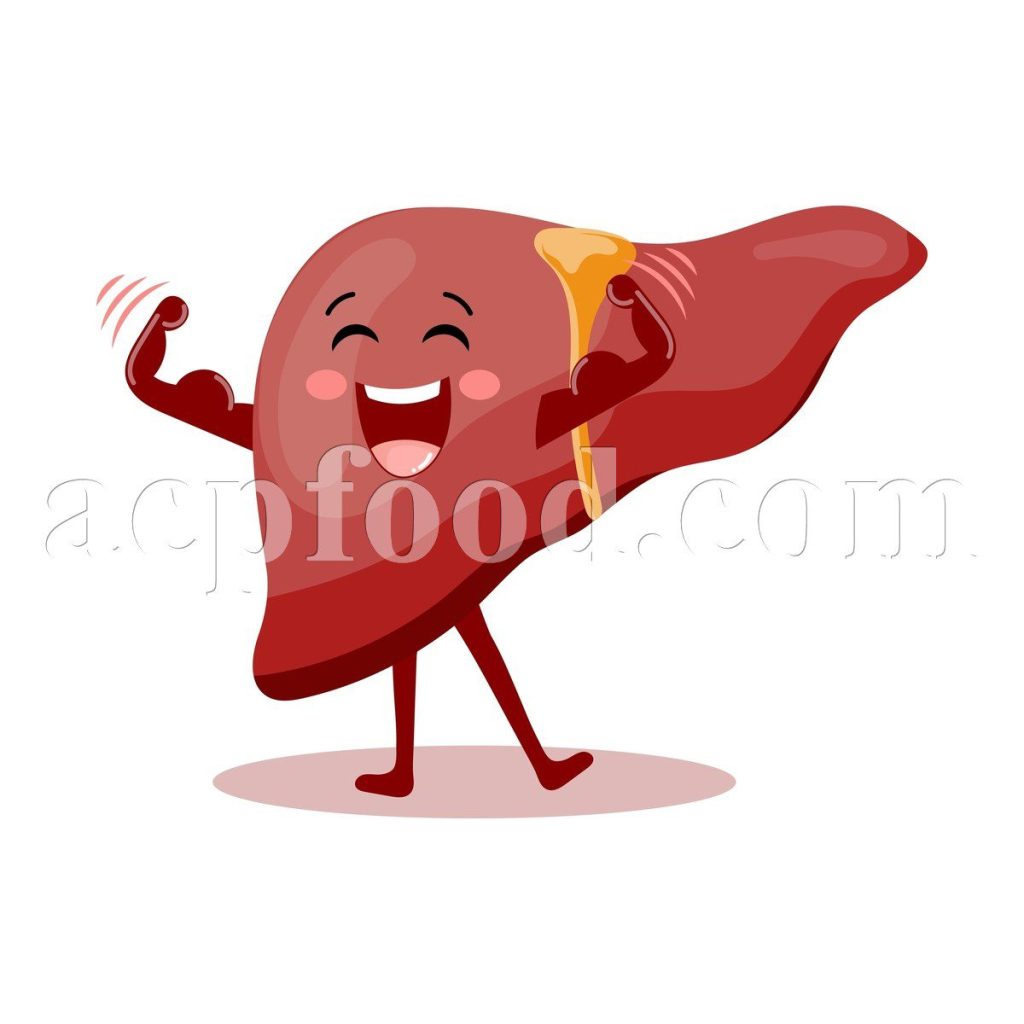
References:
1- The Canon of Medicine- by Avicenna- 1025
2- Daeratol Maarif Giah Darmanie Iran (Noskhehaye Shafabakhsh), by Haji Sharifi, Ahmad (Attare Esfahani)
